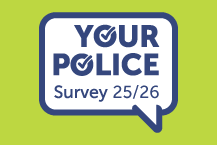Renfrewshire and Inverclyde records drop in serious and indecent assault
Renfrewshire and Inverclyde has recorded a drop in fire-raising and serious and indecent assault according to figures released by Police Scotland.
Recorded incidents of rape and common assault are also down against the same reporting period last year.
More than 180 fewer crimes of vandalism and malicious mischief have also been recorded while fraud remains a national threat with a local increase of 139 recorded incidents.
Chief Superintendent David Duncan, commander of Renfrewshire and Inverclyde Division said: “Fewer crimes are always welcome news and often reflect the local policing efforts of officers in their commitment to keeping people safe.
“Policing the pandemic brought a unique set of challenges and officers put themselves in harm’s way to prioritise the safety of those we serve. The impact of coronavirus on policing demand is, as yet, not fully understood but these latest figures provide a perspective on trends during the most recent period of regulation.
“We have recorded 42 fewer incidents of serious assault and 28 fewer crimes of indecent assault. Common assault has dropped by more than 200 from 1,935 to 1,736 and crimes of rape are down 23 against the same period last year.
“Fraud is a national priority which we are fully committed to tackling and our specialist crime division has a significant wealth of expertise to help in that regard.”
Deputy Chief Constable Fiona Taylor said: “While there has been a reduction in overall crime in recent years, we have seen a shift to more serious offences and increasingly complex and resource-intensive investigations.
“Policing must continue to enhance our specialist capacity and capability to protect the people of Scotland from threat, harm and risk in the public, private and virtual spaces.”
The figures are outlined in Police Scotland’s 2020-21 Quarter 3 Performance Report which is published today. It shows that 25,000 additional calls to the organisation took place between April and December compared to the same period last year, taking the total number of 999 and 101 contacts to almost 2 million during the first three-quarters of 2020-21.






